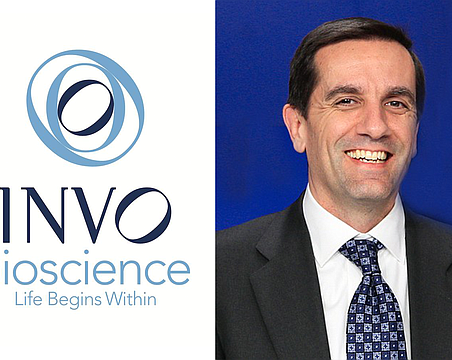Nary a day goes by without some editorial writer or state Democratic Party lawmaker or Charlie Crist haranguing Florida's governor and Republican-controlled Legislature for not taking federal tax dollars to expand Florida's Medicaid program under the terms of the Affordable Care Act.
On and on they go about 1.2 million Floridians being denied admittance to Medicaid — the taxpayer-funded program that pays low-income Americans' medical and pharmaceutical expenses.
And they ram home their point over and over that Gov. Rick Scott and the Legislature are rejecting federal money from coming back to Florida, money that Floridians have paid in federal taxes. According to Lloyd Dunkelberger, a Tallahassee-based reporter for Halifax Media, Florida will reject $66 billion in federal tax money over the next decade that would be used to provide medical services to Florida's Medicaid recipients.
That money, Medicaid proponents contend, would fuel employment growth in the health care industry to accommodate all those Floridians eligible to receive free medical services.
It's a no-brainer, right?
Why would anyone reject money getting your tax dollars back from Washington?
For one, that's a myth — that Florida is rejecting its taxpayers' own money.
Politicians can put all kinds of spin on this. But the fact is the money Floridians and everyone else send to Washington is dropped into the federal black hole of spending. And there simply is not enough of it to go around. The federal government must borrow every year about $744 billion to cover its annual spending.
So when Medicaid proponents are saying expand Medicaid spending, they are forgetting: The more that is spent to expand Medicaid to provide free medical services to low- and middle-income Americans, the more the federal government must borrow or the higher Congress must raise taxes.
But because Congress is loathe to raise taxes, expanding Medicaid spending under the Affordable Care Act is just another immoral act of passing on today's profligate government spending to your children and grandchildren to pay in the future.
While it sounds humanitarian and altruistic to say every American is entitled to medical services, this reminds us of the comment economist Thomas Sowell made once about health care: There is not enough money in the world to provide all of us with the kind of medical services we would like to have. Medical services are like water, food and oil: They are not a right; they are scarce resources. They are not free.
All of those Medicaid proponents might want to answer this simple question when they rail about expanding Medicaid to the uninsured: Who pays?
Here's the answer: Everyone who is employed pays. The more Washington borrows and pays in interest, the less capital there is for private investment to fuel the private-sector economy and create jobs — jobs that give unemployed and underemployed the opportunity to boost their standard of living and pay for their own medical insurance.
Unfortunately, the proponents of expanded Medicaid refuse to think of the other side of the coin: Someone must pay.
It's a lousy system
There's another aspect to the expanded Medicaid argument that its proponents neglect to reconcile: Medicaid typically is lousy.
In a book called “The Economics of Medicaid,” co-author Jason Fichtner, a senior research fellow at the Mercatus Center at George Mason University, writes:
“An ideal health care system will provide better health to more people at lower cost on a continuous basis. By this standard, Medicaid is an abject failure. For lower-income Americans, Medicaid yields poor coverage, poor care and poor medical outcomes ... It is a pennywise-and-pound-foolish program that, paradoxically, sends costs soaring by underpaying providers. And the coverage, care and cost elements show little or no improvement over time.”
In his chapter entitled “Medicaid and Health,” Fichtner provides ample empirical evidence showing the uncorrectable flaws of Medicaid:
• Because of low reimbursement rates to doctors, many providers do not accept Medicaid patients, and more and more physicians are declining to treat Medicaid patients at all.
This creates a shortage of doctors who are trying to satisfy excess demand. One result: rationing. This occurs by long wait times, the frustration of which pushes Medicaid enrollees to use hospital emergency rooms or to drop out of Medicaid altogether.
• Poor medical outcomes are widespread. Fichtner cited seven university studies showing Medicaid enrollees had worse medical outcomes and results than individuals who had private insurance.
The “most damning” of all the studies was the one known as the Oregon Experiment.
“In 2008,” Fichtner reports, “Oregon expanded its Medicaid program. Approximately 90,000 people applied for 30,000 newly available slots, and the state used a lottery to choose who got in and who did not. Afterward, the state tracked the health of 6,387 adults who were chosen and 5,842 who were not.
“From a standpoint of physical health,” Fichtner writes, “the results were devastating: 'This randomized, controlled study showed that Medicaid coverage generated no significant improvements in measured physical health outcomes in the first two years, but it did increase use of health care services, raise rates of diabetes detection and management, lower rates of depression and reduce financial strain. Supporters of Medicaid point to positives that follow the word 'but' in the preceding sentence.
“None of this evidence suggests that Medicaid harms its enrollees' overall health ... But the lack of improvement in physical health metrics strongly bolsters the case that whatever its merits, Medicaid is deeply substandard in providing its recipients with health.”
Fichtner concludes his analysis of Medicaid with the following:
“Medicaid was created in 1965 to provide medical coverage for the poor. As is now clear, coverage does not necessarily translate into care, and Medicaid's care does not necessarily translate into better health.
“For the federal and state governments, the program is pricey. For enrollees who navigate Medicaid's labyrinth on the way to care, it is perplexing. And in terms of improving health, it is poor.
“From a moral standpoint, lower-income Americans deserve a better system than the current one, which is pricey, perplexing and poor.”
It shouldn't be difficult to figure out what works better. It's not more government-controlled health care.





